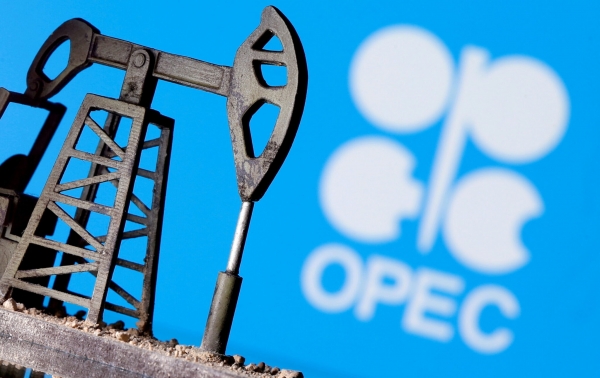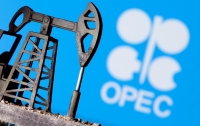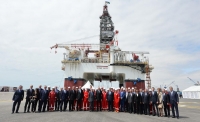It is no secret that so widely covered in world media the COVID19 coronavirus infection has not only triggered a record fall of prices for energy carriers but also served as somewhat a catalyst to realizing the «energy coordinate system» in which we all exist and which we lacked so much to understand the necessity to reform what we used to call energy security.
The XX century’s most liquid commodity, oil is rapidly transforming into an outcast commodity, and environmentally friendly energy resources are increasingly coming on its heels. In the meantime, it does not matter that wind energy is unstable and is no less disastrous for flora and fauna than oil, and solar energy, in addition to weather whims, also occupies huge territories and does not have storage and long-distance transportation technologies. Moreover, production of lithium batteries for electric vehicles requires energy consumption exceeding that of conventional fuel production by 30%. Besides, its «carbon footprint» turned out to be 20-60% higher than the ratio required for production of internal combustion engines. Seeking to preserve the «usual routine of things», we continue to lose 65% of the population of bees which are responsible for the life of 80% of vegetation on Earth, no one wants to breathe the products of life of organisms that died 5 million years ago, our oceans are suffocating from garbage and in some 30 years there will simply be no clean drinking water left on the planet, as well as its flora and fauna. What we have is local renewable energy markets, which, for all their efficiency, are still seasonal. This is one of the reasons why oil is held up through artificial regulation, although recently it has been increasingly yielding this leading role to natural gas and its liquid fractions. Today investors, analysts and marketing specialists find gas to be a natural transition energy carrier meant to eliminate dependence on coal and oil.
The role of natural gas in the European Union should seriously shrink by the middle of the century, Director General for Energy of the European Commission Ditte Juul Jorgensen said during an online conference of the Atlantic Council. However, natural gas plays a «very, very large role» in the set of energy resources used by the EU (the so-called energy mix), it accounts for more than a third of energy consumption, and in the foreseeable future gas will remain an important source of energy for the EU.
«I think it is important to look at the role of gas in our energy mix in the long term. It is clear that as we approach 2050, the role of gas in our economy’s climate neutrality will be much less than it is now. But it is going to happen in 30 years,» she said.
The European Commission would like to see the natural gas use in the European Union replaced by much «cleaner» energy sources, Deputy Director General for Energy Klaus-Dieter Borchardt noted earlier at the same conference. However, it can be done when and if the EU has alternative types of energy in the volumes that its energy system needs, he stressed.
In December the EU leaders summit agreed to shift to the so-called climate neutrality by 2050. In early March, the European Commission proposed a document that should oblige the EU to become climate neutral by the middle of the century. It involves a draft law that sets a mandatory goal – the total amount of greenhouse gas emissions into the atmosphere within the Union should become zero by 2050.
Meanwhile, the European market is becoming more and more global. In March this year, Ukrainian Naftogaz signed a contract with the American Louisiana Natural Gas Exports to purchase about 5.5 billion cubic meters of American LNG during a period of twenty years. The package includes two more contracts: for the storage of transoceanic fuel in gas storage facilities in Ukraine and for the construction and operation of gas transport infrastructure between Poland and Ukraine.
LNG blurs the boundaries, reducing the dependence of gas on oil quotes, the larger is the volume of spot gas trading, the more likely it is that in the near future gas will break out into free pricing. Then LNG consignments will face competition with pipeline gas on both European and Asian exchanges, stimulating investment in the gas upstream and stable growth of the gas balance, just what a strategic investor needs.
Gas has its own advantage – it does not have a regulator like OPEC, which made it possible to naturally control supplies according to demand during the crisis.
OAPEC
The entire history of oil in the twentieth century is actually its use as an economic «weapon», which reminds of the oil embargoes, for example, set in October 1973. The United States has imposed more oil embargoes than any other country in its history, including two decades of oil embargoes on Japan before the World War II, the Soviet Union in 1960, North Africa, Burma, Serbia, Haiti, Libya, Iraq, Iran, and Sudan.
Some Arab oil-producing states imposed embargoes in 1956, 1967, and 1973 on the states that were allies of the USA and western countries. In this way, in 1967 and 1973 they wanted to force countries, supporting Israel, to change their policies and put pressure on it during the 1967 war.
The most important outcome of the embargo imposed in 1967 was the emergence of the Organization of the Arab petroleum exporting countries (OAPEC) which later became the Organization of the Petroleum Exporting Countries (OPEC).
When crude oil prices rose sharply in 1974, some OPEC members considered them too high. Saudi Arabia began to worry that high oil prices could destroy the economy of West Europe, thereby strengthening the Communist bloc, alternative technologies, which may in the future lead to a lack of need for oil and thus OAPEC may cease to exist as an organization.
In January 1974, the Oil Ministers gave permission to increase production by 10% instead of the planned increase of 5%. According to US officials, the imposed embargo ended on March 18, 1974, and in respect of the Netherlands - on July 11, 1974.
OPEC +++..
Today, OPEC has lost its former political role, the number of its participants has increased and its main function - maintaining the significance of the role of oil as the world’s main energy resource during the last crisis - has proved to be failing. The OPEC’s influence over markets is getting less and less. Therefore, natural gas, which is the most environmentally friendly energy carrier, increasingly needs to be untied from oil quotes, likewise OPEC may cease to exist.
OPEC has damped its outlook for a decline in global oil demand due to the coronavirus pandemic: demand is expected to fall to 81.3 million barrels per day in the second quarter of 2020. On 12 April 2020, Saudi Arabia, Russia and other OPEC+ producing countries agreed to cut oil production by 9.7 million barrels per day in May and June, or by 23% relative to the baseline level, then in July-December 2020, this limit will be eased to 7.7 million barrels per day, or 18%, and in the period from January 2021 to April 2022, the level of limit will make 5.8 million barrels per day, or 14% of the baseline level.
The previous deal was valid for three years - from the beginning of 2017 till March 31, 2020. In 2009, OPEC cut oil production by only 3 million b/d in order to restore price growth, and by 4 million b/d in 1999.
The modern OPEC is a cumbersome format consisting of 23 countries and now has got a new name “OPEC+++”. And this unprecedented reduction in the history of OPEC and the entire oil market did not help, prices continued to fall. The data on oil storage facilities in the United States or the situation with another coronavirus lockdown had a bigger influence on the mood of traders than cuts within OPEC+++. Amid the data on violation of agreements by some members of the organization, as well as huge losses of oil and gas majors, the relevance of OPEC is broadly challenged from the point of view of the free market and the further investment attractiveness of the oil and gas industry, which requires stability rather than artificial regulation.
As is known, the price of the benchmark crude saw the drop below $16 on April 22. In the rest of the April days the European oil was traded in the range of $20-24 per barrel. Quotes rose to $26 and above on the last day of the month that was a response to the U.S. Department of Energy data on oil reserves and petroleum products, as well as perhaps the expectations of the market players for stimulus measures from the U.S FRS.
Things in the American market were even more dramatic. The price of May futures for the North American crude WTI first saw a drop down to zero per barrel on April 20 and then its quotes went negative – for the first time in history! The oil price was falling down to -$40 per barrel at a point, so the contract sellers paid the rest to customers. As Media noted, it was caused by the falling demand for oil due to anti-coronavirus downtime of the global economy and a significant reduction in reserve capacity for oil storage.
Does today’s world economy need artificial survival of oil prices prone to the «Dutch syndrome» of the world economy, which can entail another crises, or is OPEC “ a horse with cracked hooves and is it time to dismount it?», one of the Russian oligarchs aptly questions.










